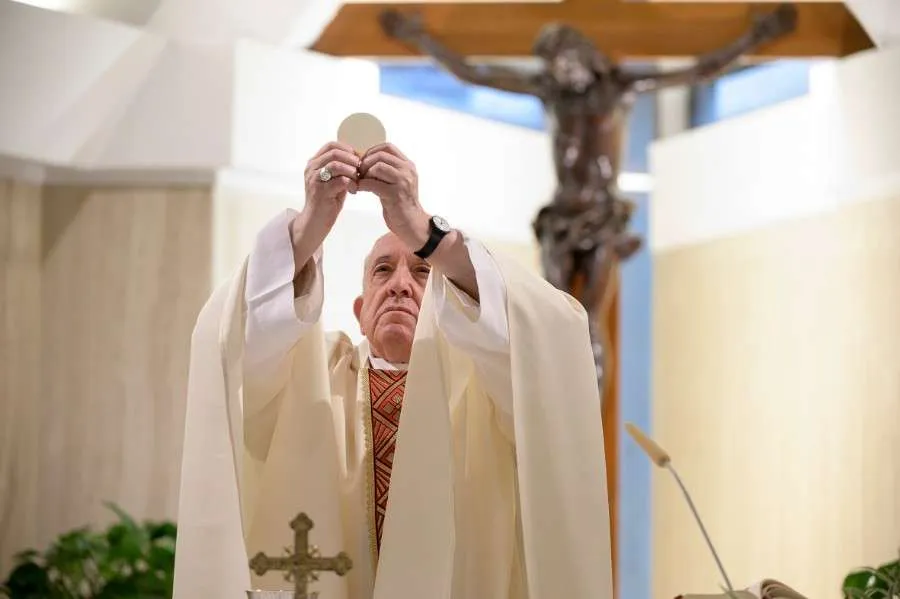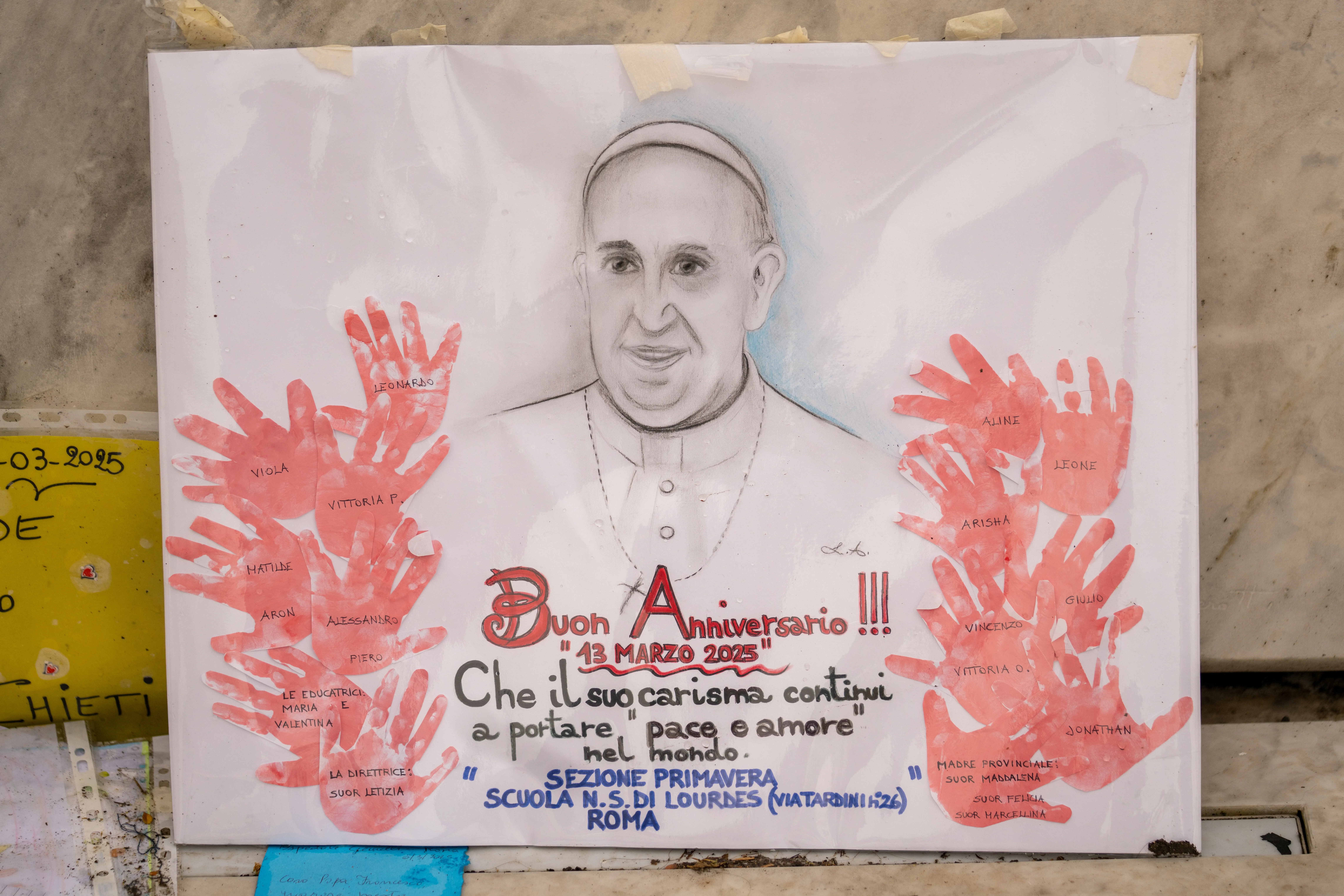He described the passage as Jesus’ “declaration of access to the Father.” It was, he suggested, as if Christ “opened the doors of the omnipotence of prayer.”
Believers should pray with trust and courage, he said. He gave the examples of Abraham “haggling” with God to save Sodom in Genesis 18:20-33, and Moses asking the Lord to spare his people in Exodus 32:1-35. Therefore Christians should not pray timidly.
“To pray is to go with Jesus to the Father who will give you everything," he said. "Courage in prayer, frankness in prayer.”
The pope then turned to the day’s second reading, Acts 6:1-7, in which the apostles respond to complaints about food distribution in the early Christian community.
He noted that, in order to focus on prayer and preaching, the apostles “enlightened by the Holy Spirit, ‘invented’, so to speak, the deacons,” selecting seven men of good reputation to oversee food allocation.
He said: “This is the bishop's task: to pray and preach. With this strength that we have heard in the Gospel: the bishop is the first one who goes to the Father, with the trust that Jesus gave, with courage, with parrhesia [bold speech], to fight for his people. The first task of a bishop is to pray.”
The pope recalled “a holy parish priest” who whenever he met a bishop would ask him how many hours a day he prayed.
Prayer is a bishop’s primary task, he said, “Because it is the prayer of the head of the community for the community, the intercession to the Father so that he might guard the people.”
He concluded: “It is sad to see good bishops, good people, good people, but busy with many things, the economy, and this and that... Prayer in first place. Then the other things. But when the other things take space away from prayer, something doesn’t work…”
“This is how the Church goes forward, with prayer, the courage of prayer, because the Church knows that without this access to the Father she cannot survive.”







